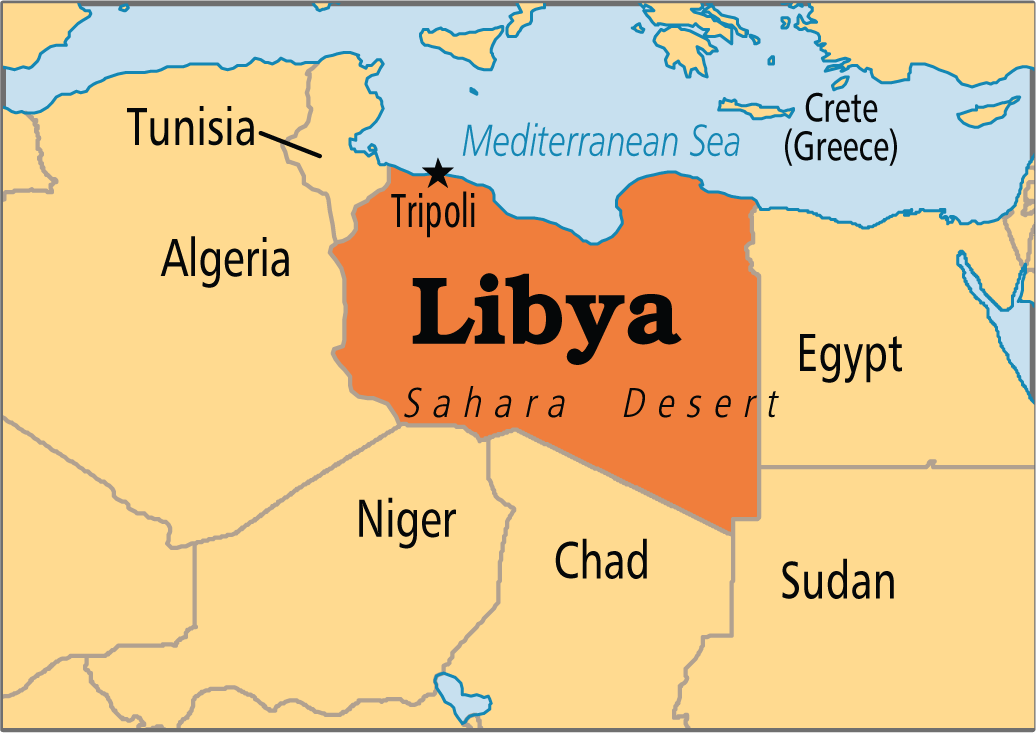Business Opportunities exist in Libya
OpenLife Nigeria has gathered from a fresh report that ample business opportunities are available for potential investors in Libya specifically in Misurata Free Zone, MFZ.
With its strategic location on the Mediterranean Sea and in the heart of North Africa, Misurata Free Zone (MFZ) is well placed to offer significant opportunities for investors in a range of key sectors.
The facility is at the crossroads of traditional and modern north-south and east-west trade routes, making it a competitive and attractive destination for companies looking to expand operations in both new and established markets.
MFZ is able to leverage its strategic location through its extensive logistics networks, including its own port.
The MFZ Port is a modern facility and Libya’s busiest maritime link.
Indeed, in 2019, the port handled five times as many containers as the Port of Tripoli, and saw twice as many ship arrivals as the Port of Benghazi.
According to industry outlet MarineTraffic, general cargo traditionally accounts for the largest proportion of port calls, at 22% of the total, followed by container ships (21%), bulk carriers (12%), oil and chemical tankers (11%), and vehicle carriers (10%), although this can vary from month to month.
The port can process vessels up to 300 metres in length, with a maximum draught of 16.3 metres and deadweight of over 181,000 tonnes.
This allows it to service a wide range of ship sizes. The port provides transit trade and trans-shipment services, with direct access to warehousing on its quays, as well as immediate access to the industrial and manufacturing areas of the free zone.
The port has also seen the recent return of passenger services.
On December 1, 2021 Libyan ferry company Kevalay sent the first passenger ship since 1996 from the port to Izmir, Turkey. Passenger Lique-ed petroleum gas carriers Fishing Wet bulk Dry bulk Container Dry break bulk Roll on/roll o MFZ arrivals by vessel type, April 24-May 4, 2022 (%) 35.4 29.4 11.8 5.9 5.9 5.6 3 3 Investment Opportunities Many firms from Turkey have set up operations in MFZ and the new link aims to both service existing firms and enhance the zone’s competitiveness with a key international market.
Logistics and transport are core areas of development for Turkish companies active in MFZ, which see the facility as a port of entry to reach growing markets in Africa. One example is Albayrak Group, which is involved in industries ranging from construction to logistics.
In July 2021 Albayrak representatives visited MFZ, with an eye to establishing cold and dry storage and warehousing operations in the zone. Another Turkish company active in MFZ is Yıldırım Group, an industrial conglomerate based in Istanbul.
In June 2021 the group signed a memorandum of understanding with MFZ to identify opportunities for investment, most notably in terms of port traffic and development. MFZ is also positioned close to Misrata International Airport.
The airport handles regular passenger links to cities including Istanbul, Cairo and Tunis, as well as cargo flights.
In March 2021 flights resumed to Benghazi, with the airport now playing a key role in re-integrating Libya’s air logistics networks.
The port can process vessels up to 300 metres in length, with a maximum draught of 16.3 metres and deadweight of over 181,000 tonnes 3 OBG Misurata Free Zone Focus Report June 2022.
In addition to maritime and air connections, MFZ is linked by road to destinations across Libya and beyond.
It is positioned along the North Africa coast, with access to Tripoli, a three-hour drive from Misrata to the west; Sirte, around 2.5 hours to the east; and Benghazi, 8.5 hours to the east. While a previous initiative to build a railway from the border with Tunisia to that with Egypt stalled after 2011, the resumption of construction would add to the zone’s land transport connectivity, with a spur south of Sabha also planned.
The rail development would also help connect MFZ to its sister operation, the Taminhent Free Zone, near Sabha in the south. The two cities are currently connected by a road link. Strengthening connectivity, for example through a rail line, could bolster Libya’s efforts to position itself as a future gateway to Africa. In addition to being a key transport and logistics destination, the south plays a crucial role for another leading sector: energy. The country had 48.4bn barrels of proven crude reserves as of 2020 and 1.5trn cu metres of proven natural gas reserves as of 2021, according to the Organisation of the Petroleum Exporting Countries – a body Libya has been a member of since 1962. Most of the country’s producing fields lie in the south, while export facilities are all on the northern coast, highlighting the importance of north south connectivity.
Although the energy sector has been affected by conflict and blockades in recent years, rapprochement has seen oil and gas production rebound. MFZ is in a strong position to benefit from easing of tensions, as its port is a major loading site for the Brega Petroleum Marketing Company, the oil storage and distribution arm of the Libyan National Oil Corporation.
MFZ also benefits from its proximity to the main east-to-west gas pipeline that runs along the coast. The presence of this infrastructure positions MFZ as a destination for petrochemicals industries, as well as being a base for oil and gas service and logistics firms such as Malta’s Medserv Energy.
At the same time, MFZ has been a target for investment from global players in a range of segments, including the automotive industry. Japan’s Toyota established its Libya head office in the zone in 2010 and was its largest foreign investor as of early 2022. From its position at MFZ, the Japanese car giant coordinates the distribution of vehicles and spare parts for customers across the country. Toyota’s base in the zone also creates an opening for investors in associated industries such as parts manufacturing to establish their businesses next to one of the world’s leading automotive players.
MFZ is home to a range of financial services outfits as well, with institutions such as Jumhouria Bank – Libya’s largest – and the Libyan Foreign Bank present in the zone. Investors therefore have firm foundations to build upon should they establish operations at MFZ.






